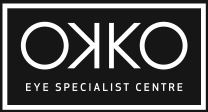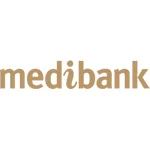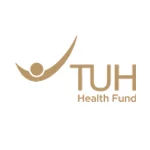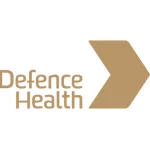©2024 OKKO Eye Specialist Centre. All Rights Reserved


Macular diseases encompass a range of conditions that affect the macula, a crucial part of the retina responsible for sharp, central vision. Among these conditions, Age-related Macular Degeneration and Central Serous Chorioretinopathy present significant challenges to vision health. Age-related Macular Degeneration involves the progressive deterioration of the macula with age, leading to blurred or distorted central vision, while Central Serous Chorioretinopathy is characterised by fluid buildup beneath the retina, affecting visual acuity.
At OKKO, we specialise in advanced treatments tailored to address these complex macular disorders effectively. From innovative medications and targeted laser therapies to specialised surgical interventions, our comprehensive approach aims to preserve vision and improve the quality of life for people living with macular conditions.
Useful information about central serous chorioretinopathy (CSCR)
Central serous chorioretinopathy, commonly referred to as CSCR, is a condition in which fluid accumulates under the retina that can result in vision loss.
CSCR most often occurs in young and middle-aged adults. For unknown reasons, men develop this condition more commonly than women. Vision loss is usually temporary but sometimes can become chronic or recur.
The causes of CSCR are not fully understood, however, medical professionals believe that systemic exposure to corticosteroid drugs (steroid hormones) can trigger or worsen CSCR.
Your doctor will conduct a complete dilated eye examination in both eyes and will obtain imaging of the retina. They may take retinal photographs to document the appearance of the disease.
Optical coherence tomography (OCT) is a retinal scan that is very helpful in diagnosing CSCR; it enables your doctor to see the retina at the microscopic level. This makes it possible to identify very small pockets of fluid or retinal scarring (once the fluid has subsided) in acute or chronic CSCR.
Fluorescein angiography is a test in which we inject dye into a patient’s arm vein, and a machine takes pictures of each eye to detect leakage of the dye beneath the patient’s retina. This test, along with OCT, can help your ophthalmologist diagnose CSCR, and to distinguish it from other retinal diseases causing fluid in the macula.
Early detection of CSCR is very helpful, and most eyes with chronic or recurrent CSCR can be treated successfully to avoid permanent vision loss.
CSCR can often spontaneously improve without treatment, however, monitoring with your ophthalmologist is still required to ensure that this successfully occurs. However, if the course of a CSCR episode becomes protracted (chronic) or recurrent then your ophthalmologist may recommend treatment such as macular laser to stabilise the vision and prevent further visual decline.1
Laser treatment is painless2and can target the source of fluid leakage under the retina.
About half of patients diagnosed with CSCR have at least one relative with findings of the disease. This indicates that there may be a genetic tendency; however, no specific inheritance pattern has been identified.
Patients with high blood pressure or heart disease and those with current or recent pregnancy have been shown to have a higher risk of developing CSCR.
Beyond corticosteroids, there is evidence that other drugs including stimulants, decongestants, erectile dysfunction medications, and some anti-cancer agents may trigger CSCR.
How long does it take for central serous retinopathy to heal?
Most people usually recover from the condition within 4 to 6 months and won’t need any treatment. If the condition has lasted up to a year and is severely impacting your life, laser treatment may help.
The OKKO Eye Specialist Centre team is highly experienced in the diagnosis, treatment and management of a comprehensive range of eye conditions, including cataracts, glaucoma and macular diseases.
Book a consultation, and one of our Brisbane eye experts will guide you towards the very best treatment for your eyes so you can get the results you’re looking for.
Don’t let anything stop you from accomplishing your goals.
Join thousands of Queenslanders in learning more about age-related macular degeneration and what it means for you.
Treatment of age-related macular degeneration means you can continue to enjoy the things you love.
Take control of your body and find out how you can prevent one of the most common causes of irreversible vision loss.
Hearing you have age-related macular degeneration can be scary but it doesn’t necessarily mean giving up all the things you love. Our doctors can guide you through the diagnosis and treatment options where appropriate.
Improve your confidence with your normal day-to-day activities and reconnect with the people in your life. Your life has no limitations.
Leave this item empty
We will diagnose your condition by reviewing your medical and family history and conducting a complete eye exam.
AMD treatment
Depending on the type of AMD you have, treatments may help slow disease progression (as in the case of dry AMD) or alternatively, preserve existing vision and recover some lost vision if started early enough (as in the case of wet AMD).
Dry AMD
Currently, there is no treatment for dry AMD. However, you can slow its progression by taking vitamin supplements, eating a healthy and well-balanced diet, and not smoking.
If your dry AMD is advanced and vision has already been impacted, you may benefit from:
Wet AMD
Anti-VEGF injections
Anti-VEGF injections can slow the growth of new abnormal and leaking blood vessels. They do this by hindering the effects of growth hormone signals that are generated in the eye due to wet AMD. When these blood vessels are unable to leak, the fluid that has entered the macula can resolve and macular function can resume. This may help to stabilise and improve vision. Injections are performed on an anaesthetised eye and there is no significant discomfort associated with this procedure.
Anti-VEGF agents are controlling treatments and are not considered a cure. Therefore, regular treatments are required for continuous control of the condition and to allow vision to be maintained.
Initially, we usually administer anti-VEGF treatments on a four weekly regime for an induction period of approximately three months. Following the induction period and successful response to the medication, we may extend the treatment over proceeding intervals. Some patients may then only require treatment at 12 weekly intervals.
We need to readminister anti-VEGF medications at these intervals due to the ongoing production of the VEGF growth hormone that is produced by the body. When the injected medication has been completely used up, abnormal vessels may regrow and leak, and this is an indication that further treatment is required. Ultimately, the rate of intervals for treatment depends on the rate your body produces the growth hormone, in relation to how fast the medication is used up.
Advantages
Disadvantages
There are some risks associated with having these injections. These include minor complications such as a small surface bleed from a burst blood vessel at the site of the injection (this has no impact on vision and self-resolves), mild eye irritation, or a small floater in the vision usually caused by a bubble of air being pushed through from the syringe.
There is a low risk of less than 1% of cases having a serious complication. These risks are infection in the eye known as endophthalmitis and retinal detachment. Symptoms of endophthalmitis include loss of vision and commonly (but not always) pain. Those experiencing a retinal detachment often note symptoms such as an arc of flashing light in the peripheral area of vision, multiple floating spots/lines/“clumps” in the vision that seem to move around, and on occasion a “curtain” coming across the field of vision. If you notice any of these symptoms following the injections, we recommend you call the OKKO Eye Specialist Centre immediately.
Other risks include the accelerated formation of cataract if you have not already had cataract surgery.
There is also a risk of your condition being unresponsive to medication.
Wet age-Related Macular Degeneration (AMD) is almost always treated with intravitreous anti-VEGF injections, however other options could also include:
Anti-VEGF injections
Step 1: We apply a local anaesthetic to numb the eye, and clean the eye with antiseptic substances
Step 2: We use a tiny needle (0.31mm in size) attached to a syringe of medication for the injection.
These medicines are effective in preventing further central vision loss in up to 90% of treated eyes.
Get the expert eye treatment you need in 3 easy steps
Give us a call on: 07 3725 0222 and we’ll guide you towards an initial consultation.
During your initial consultation, we will take a detailed medical history and examination to make an accurate assessment of the issue at hand.
We will treat you at one of our state-of-the-art Brisbane eye clinic facilities, with the aim of giving you the optimism and confidence to re-engage with life.
OKKO aims to provide life-changing vision transformation to patients









Leave this item empty
A guide to the types of glaucoma as well the treatments. Click here for more information.
A guide to possible treatments and preventions for AMD. Click here for more information.
A guide to diagnosis and treatment options for Diabetic Retinopathy. Click here for more information.
A guide to basic information about keratoconus as well 10 possible treatment options. Click here to find out more.
A guide to how to manage/treat ocular surface diseases. Click here to find out more.
A guide to treatment options for Central Serous Chorioretinopathy (CSCR). Click here for more information.
Leave this item empty
A guide to treatments and preventions for AMD. Click here for more information.
Dr Russell is regarded as an ophthalmic microsurgery specialist with international training in refractive surgery, medical retinal disease, and cataract surgery. He has also served as a clinical assistant professor at the University of British Columbia in Canada.
Dr Russell started in private practice in 2007 with Vision Eye Institute in Brisbane and has since gone on to found OKKO Eye Specialist Centre and VSON Vision Correction Specialists.




Dr Nick Toalster is an ophthalmologist with advanced training in cataract, glaucoma and corneal microsurgery. Dr Toalster has a particular focus on individualising treatments for each patient and a passion for blending the use of the latest medical technology with compassionate care.
Dr Toalster is a fully qualified optometrist and ophthalmologist, having graduated with honours from both Queensland University of Technology in 2002 & the University of Queensland in 2010.


Dr Eve Hsing is a comprehensive Ophthalmologist specialising in medical retinal conditions including macular degeneration, diabetic eye disease and vascular occlusion, as well as general eye conditions such as cataracts and pterygium surgery.
Dr Hsing takes pride in taking the time to ensure her patients fully understand their eye condition and treatment options. In her spare time, she enjoys playing music and has been a member of the Queensland Medical Orchestra throughout her medical training.


Dr Wang is an ophthalmologist with subspecialty training in oculoplastics, ophthalmic cataract microsurgery, and medical retina. Passionate about providing personalised, top-tier care, Dr Wang offers treatments for a range of ophthalmic conditions, including cataracts, macular degeneration, diabetic retinopathy, and eyelid, lacrimal, and orbital diseases. Fluent in Mandarin and Cantonese, Dr Wang is committed to making healthcare accessible to a diverse patient base.
